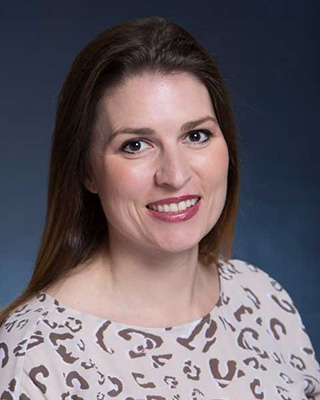August 2020 Member of the Month
Member of the Month:
Elizabeth Seymour, MD, FAAFP
Denton family and functional medicine physician focuses on preventive medicine, public health
By Kate Alfano
posted 08.05.20
Elizabeth Seymour, MD, is a family and functional medicine physician who joined the staff of the Environmental Health Center in 2015. She is involved in her community and a leader in organized medicine, but most importantly she is dedicated to her patients, focusing on cardiovascular health, preventive medicine and risk reduction as well as offering allergy testing in her office.

Dr. Seymour earned her BS in Biology at Texas Woman’s University in Denton where she graduated Magna Cum Laude and was a member of the Phi Theta Kappa Honor Society. She earned an MS in Health Services Administration at St. Joseph’s College in Standish, Maine, and her medical degree at St. Matthews University School of Medicine, Grand Cayman, British West Indies. Her internship and residency were with Oklahoma University Health Sciences Center in Oklahoma City. Upon graduating from her residency, she was named Oklahoma Medical Society’s “Youngest Member Ever.”
Please describe your practice or approach to family medicine.
I began my family medicine career with a busy group practice in Oklahoma and did “full-on” family medicine. I saw everyone from babies to geriatric patients, in the hospital doing rounds with inpatients, outpatients, at deliveries for C-sections and newborn care, and at nursing homes. After moving back home to Denton, I became an independent physician in private practice and slowly left inpatient care to transition to 100% outpatient care so I could spend more time with my young, growing sons. It was hard to even take my boys to school in the morning when I received seven or more admits through the ER the night before that I had to round on before my 8 a.m. outpatient practice started.
Who or what inspired you to pursue medicine?
My family has been in the field of medicine for generations. My grandfather was a pharmacist, my mother was in public health, and my father was a dentist at the state school. Sometimes I would go to the office with him and watch how he cared for patients with special needs. I knew what he did was important for oral care, but I didn’t want to just focus on the mouth alone. I decided to be a physician to care for the entire body.
What drew you to family medicine or what is your favorite part of practice?
It is very demanding to be a physician and it’s easy to get burned out. I decided to go into family medicine since it allowed me to be present in my sons’ lives and to raise them. I enjoy my sleep and like the predictable 8 a.m.-to-5 p.m. schedule. I love establishing relationships with my patients and caring for the entire family as the years go by. We go through the entire life span with our patients, from birth to death, and all that life brings in regard to health concerns and life’s milestones. It is often happy, sometimes sad, but family medicine gives me a gratifying sense that I am really helping someone through the journey of their life.
What makes your brand of family medicine unique?
I realized that most of my patients would succumb to cardiovascular disease, and that the rate of diabetes was growing at unprecedented rates. I started to focus my practice on cardiovascular health, preventive medicine and risk reduction. I noted that many patients had elevated inflammatory markers from many factors including trauma, toxins, allergies, or infections. That’s when my eyes were opened to a more integrative approach and I began implementing natural therapies for inflammation such as simply using a fish oil supplement to help with inflammation and CV risk reduction. I also started performing allergy testing in my office to see what the patient might be allergic to, as I got tired of writing Z-paks and giving steroids to every patient who came in daily with allergy and sinus symptoms. The allergy testing and antigen therapy has really helped my patients know what they are allergic or sensitive to, helps the patient navigate when they may get exposure, what symptoms they may have, and how to prevent these from occurring with avoidance and allergy desensitization therapy.
How has the COVID-19 pandemic affected your practice?
We are in a technological generation and many of our younger patients have been turning to telemedicine for years. Our practice is performing telemedicine at a much higher rate. I would estimate that 50% of our office visits are through telemedicine now. Obviously, there are limitations to this, and we can’t do a full or thorough physical exam, but it’s made medication refills, mental health evaluations, counseling and education, and lab reviews much more efficient.
What are your hopes for the future?
I hope that insurance will continue to cover telemedicine and phone call consultations, and that insurers will continue to see the importance of preventive medicine.
TAFP’s Member of the Month program highlights Texas family physicians in TAFP News Now and on the TAFP website. We feature a biography and a Q&A with a different TAFP member each month and his or her unique approach to family medicine. If you know an outstanding family physician colleague who you think should be featured as a Member of the Month or if you’d like to tell your own story, nominate yourself or your colleague by contacting TAFP by email at tafp@tafp.org or by phone at (512) 329-8666. View past Members of the Month here.